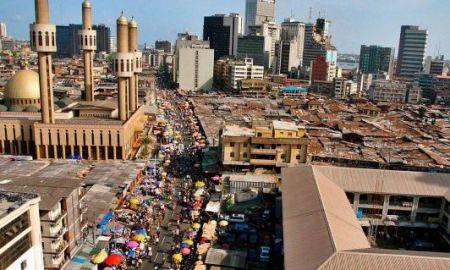
(Ecofin Agency) – Countries on the FATF’s gray list face increased scrutiny and must ramp up efforts to counter money laundering and terrorism financing, as required by the Financial Action Task Force (FATF), a global anti-money laundering organization. Recently, FATF removed Senegal from its gray list, a positive step for the West African nation’s financial reputation. However, Côte d’Ivoire joined Algeria and Angola in being added to the list, meaning all three are now under closer financial oversight and must strengthen their regulations.
After being added to the gray list in February 2024, along with South Africa, Nigeria has pledged to exit by May 2025. Speaking on the sidelines of the IMF’s annual meetings in Washington, Central Bank of Nigeria (CBN) Deputy Governor Philip Chukwuemeka Ikeazor reinforced this commitment. “Practically sending money home is impossible and if we are talking about driving remittances and FDI’s then we need to get out of the Grey List,” he said. Nigeria’s Financial Intelligence Unit (NFIU) recently confirmed that FATF approved a fourth progress report on Nigeria since its addition to the list.
CBN Governor Yemi Cardoso outlined measures taken to meet this target, emphasizing stronger oversight and collaboration with international money transfer operators (IMTOs) and Nigeria’s diaspora. Cardoso highlighted CBN’s goal to increase remittances by $1 billion soon, supported by new non-resident accounts and partnerships with Nigerian banks. “Our team held productive discussions with leading IMTO when they collectively committed to growing remittance flow to $ 1 billion through formal channels into Nigeria,” he said.
Remittances from Nigeria’s vast diaspora are vital, totaling over $20 billion last year. However, being on the gray list limits this inflow from one of Africa’s largest and most active diasporas. Nigeria recently tapped into this resource with a diaspora bond issuance, raising $900 million for the nation of over 220 million people. As Nigeria faces ongoing macroeconomic challenges and high inflation, remittances are essential for both the population and foreign currency reserves. But gray-list status typically causes international financial institutions and foreign banks to exercise more caution with transactions, raising costs for both remittances and investments.
A specialist on illicit financial flows noted that “gray-listed countries face higher transaction costs, and this affects formal financial flows like diaspora remittances, which are crucial for certain African economies.”











Comments